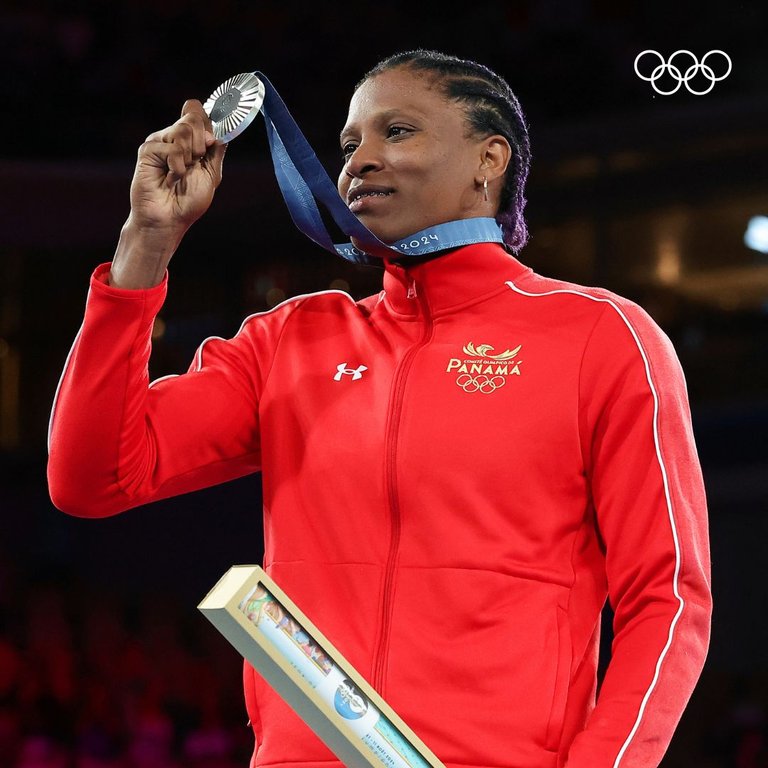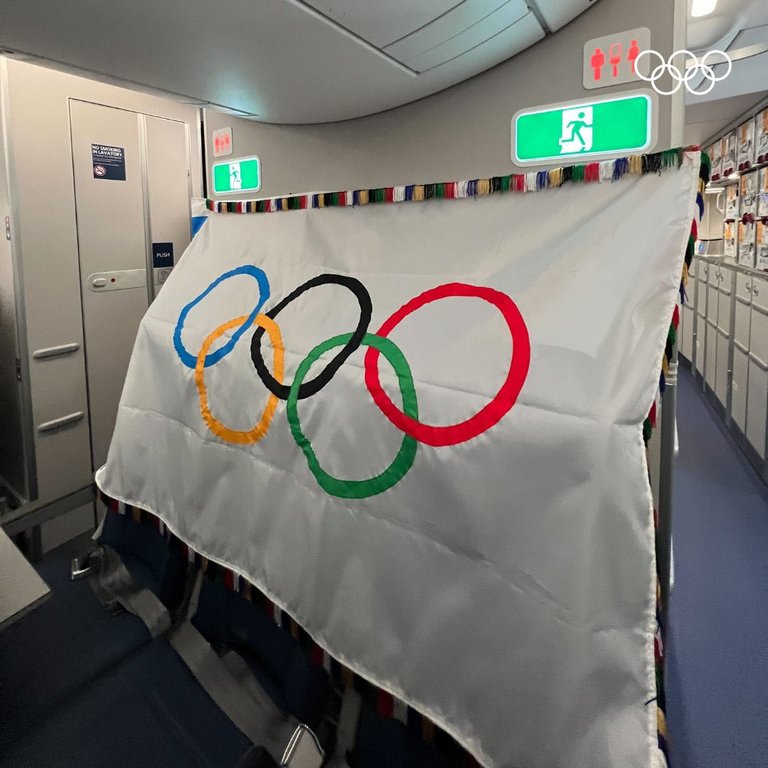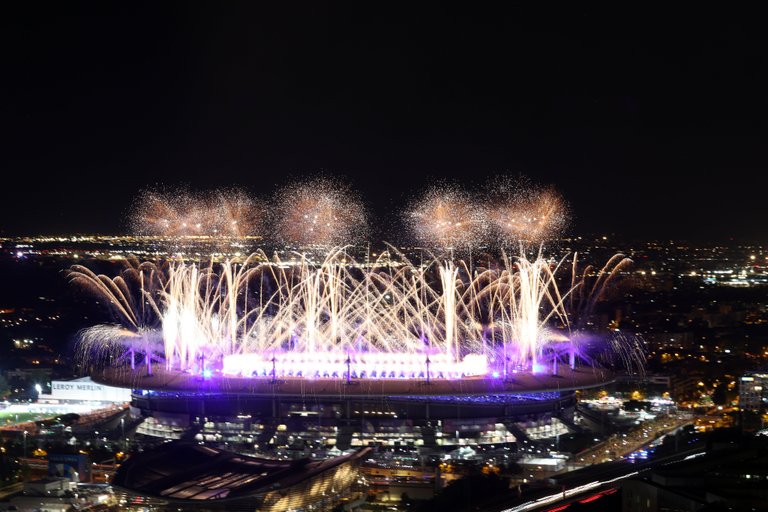
Si bien las olimpíadas de París 2024 han finalizado y deberemos esperar 4 largos años para nuevamente tener esta competencia multidisciplinaria que convoca a todo el mundo deportivo, siempre quedan resabios de la más grande fiesta del deporte conocida hasta el presente.
Además, creo que es bueno mantener el espíritu olímpico presente, recordar y evocar las hazanas y las controversias por supuesto, todo es parte de la gran fiesta y no debemos olvidarla, no al menos tan rápidamente. Creo que el ser humano ha sido llevado por la vorágine del mundo moderno a desechar rápidamente los recuerdos, las emociones, los momentos de alegría y también las tristezas y los errores, de no ser así no se explica como seguimos votando como votamos, pero no quiero meterme con la política, solo quiero hablar de deportes.
Pocos días atrás leí algunos artículos de periódicos locales hablando un poco de la historia de los juegos olímpicos y reparé en un detalle no menor, hay casi 220 países que participan eventualmente de las olimpíadas, digo eventualmente porque los atletas de todas las disciplinas deben pasar por un proceso de clasificación y hay naciones que no logran clasificar ningún atleta en determinados juegos. Volviendo al razonamiento, como dije, hay casi 220 naciones con posibilidades de presentar atletas en los juegos olímpicos y unos 150 países tienen en su haber alguna medalla de cualquier color, sin embargo, eso deja afuera del círculo virtuoso a unos 70 países que jamás han logrado que un atleta que los represente se haya subido al podio.
Algunos, como yo mismo, podríamos pensar que son las naciones más pobres y con menor desarrollo humano las que se encuentran en ese listado, no obstante, para mi sorpresa y probablemente para muchos de los que lean estas líneas, algunas naciones que se encuentran entre las más ricas y desarrolladas del mundo, tampoco han tenido atleta alguno que les haya honrado con la distinción de una medalla olímpica de cualquier color o metal, si lo prefieren.
Siempre hablamos de la gran ayuda que tienen los atletas de los países más desarrollados, subsidios del estado, recursos de sponsor privados, equipamiento de primer nivel, facilidades para viajar y competir en el máximo nivel alrededor del mundo. ¿Pero es suficiente? parecería que no, al menos hay ejemplos concretos de atletas que solo con su talento y esfuerzo personal logran triunfar en el máximo nivel deportivo, no son muchos ni es frecuente, pero los hay. Precisamente en estas olimpíadas tuvimos un par de casos resonados, Thea LaFond-Gadson de la caribeña República Dominicana dio la primera medalla para su país y nada menos que la de oro al triunfar en triple salto femenino, y aunque para muestra solo es necesario un botón, diría mi abuela, refrendaré esta aseveración con otro ejemplo más: Julien Alfred ganó la medalla de oro en los 100 metros femeninos dándole de esa manera la primera medalla olímpica a su país, Santa Lucía una pequeña isla del Caribe.
Entre los que jamás han tenido una medalla tenemos a Bolivia, por ejemplo, el único país sudamericano con esa desgraciada marca, en las antípodas de la pobreza y el subdesarrollo está Mónaco, el principado rico y poderoso con el ingreso per cápita más alto del mundo según el banco mundial que alberga a muchas de las más grandes fortunas europeas y americanas, tampoco ellos puede mostrar el orgullo de una medalla olímpica pese a ser uno de los países con mayor cantidad de asistencia a los juegos olímpicos, lo hace desde unos 100 años y en todas las ediciones salió invicto. En su defensa podemos decir que su población es escasa, unos 36.000 habitantes según el último censo y su territorio también es pequeño, pero de todas maneras suena raro, casi increíble.

Si el asunto de la población fuera un factor, podemos mencionar el caso de Bangladesh que, con casi 180 millones de habitantes, tampoco ha logrado aún tener una medalla. Otro ejemplo puede ser Cuba, con apenas unos 11 millones de habitantes acumula cerca de 250 medallas, muchísimas más que India que apenas alcanza una treintena con 1.400 millones de almas.
Entre los países con más participaciones y sin medallas, además de Mónaco con 32 presencias se encuentra Andorra, con 26.
Por supuesto que los países ricos y poderosos tienen medallas, y muchas, Mónaco es la excepción, el pequeño estado europeo de San Marino, también rico y poderoso, ganó su primera medalla en esta última edición por lo que lo sacamos de esta lista.
La mayoría de los estados sin medallas pertenecen al sector más pobre de naciones, principalmente miembros del continente africano, alguno de centro América como Honduras y también varios de Asia y Oceanía, algunos con escasa participación por ser países recientemente creados o escindidos, y otros con historia y mayor participación.
El Comité Olímpico Internacional ha mencionado que ha invertido cerca de 600 millones de dólares entre 2021 y 2024 para colaborar con atletas y entrenadores de aquellos países con mayores dificultades financieras, creo que deberá hacer un esfuerzo más importante si pretende impulsar el deporte y logra una mayor equidad en las oportunidades futuras.

Como siempre, el dinero y la política se mete en lo deportivo, aunque a la hora de comenzar el juego, solo vemos el sudor y el sacrificio de pocos.
The difficult goal of obtaining a medal
Although the Paris 2024 Olympics have ended and we will have to wait 4 long years to have this multidisciplinary competition that brings together the entire sports world again, there are always remnants of the greatest sporting event known to date.
In addition, I think it is good to keep the Olympic spirit present, to remember and evoke the feats and the controversies of course, everything is part of the great party and we must not forget it, at least not so quickly. I think that human beings have been led by the whirlwind of the modern world to quickly discard memories, emotions, moments of joy, and also sadness and mistakes, otherwise, it is not explained how we continue to vote as we do, but I do not want to get into politics, I just want to talk about sports.
A few days ago, I read some articles in local newspapers talking a little about the history of the Olympic Games and I noticed a significant detail. There are almost 220 countries that participate eventually in the Olympics. I say eventually because athletes from all disciplines must go through a qualification process and some nations fail to qualify any athlete in certain games. Returning to the reasoning, as I said, there are almost 220 nations with the possibility of presenting athletes in the Olympic Games and some 150 countries have a medal of any color, however, that leaves out of the virtuous circle some 70 countries that have never managed to have an athlete representing them get on the podium.
Some, like myself, might think that the poorest nations with the least human development are on that list, however, to my surprise and probably to many of those who read these lines, some nations that are among the richest and most developed in the world have not had an athlete who has honored them with the distinction of an Olympic medal of any color or metal if you prefer.
We always talk about the great help that athletes from the most developed countries have, state subsidies, resources from private sponsors, top-level equipment, and facilities to travel and compete at the highest level worldwide. But is it enough? It would seem not, at least there are concrete examples of athletes who only with their talent and personal effort manage to succeed at the highest sporting level, they are not many and it is not frequent, but they do exist. Precisely at these Olympics we had a couple of high-profile cases, Thea LaFond-Gadson from the Caribbean Dominican Republic gave her country its first medal and no less than a gold medal by triumphing in the women's triple jump, and although one example is enough, my grandmother would say, I will confirm this assertion with another example: Julien Alfred won the gold medal in the women's 100 meters, thus giving her country, Saint Lucia, a small island in the Caribbean, its first Olympic medal.
Among those that have never won a medal, we have Bolivia, for example, the only South American country with that unfortunate record. At the antipodes of poverty and underdevelopment is Monaco, the rich and powerful principality with the highest per capita income in the world according to the World Bank, which is home to many of the largest European and American fortunes. They too cannot boast of an Olympic medal, despite being one of the countries with the highest attendance at the Olympic Games, having done so for about 100 years and having been undefeated in every edition. In their defense, we can say that their population is small, about 36,000 inhabitants according to the last census, and their territory is also small, but in any case, it sounds strange, almost unbelievable.
If the issue of population were a factor, we can mention the case of Bangladesh, which, with almost 180 million inhabitants, has also not yet managed to win a medal. Another example is Cuba, with just 11 million inhabitants, which has around 250 medals, much more than India, which has just thirty medals with 1.4 billion souls.
Among the countries with the most participation and no medals, in addition to Monaco with 32 appearances, there is Andorra, with 26.
Of course, rich and powerful countries have medals and many of them. Monaco is the exception. The small European state of San Marino, also rich and powerful, won its first medal in this latest edition, which is why we removed it from this list.
The majority of the states without medals belong to the poorest sector of nations, mainly members of the African continent, some from Central America such as Honduras, and also several from Asia and Oceania, some with little participation because they are recently created or split countries, and others with history and greater participation.
The International Olympic Committee has mentioned that it has invested around 600 million dollars between 2021 and 2024 to collaborate with athletes and coaches from those countries with greater financial difficulties. I think that it will have to make a much greater effort if it intends to promote sport and achieve greater equity in future opportunities.
As always, money and politics get involved in sports, although when the game starts, we only see the sweat and sacrifice of a few.
Héctor Gugliermo
@hosgug
